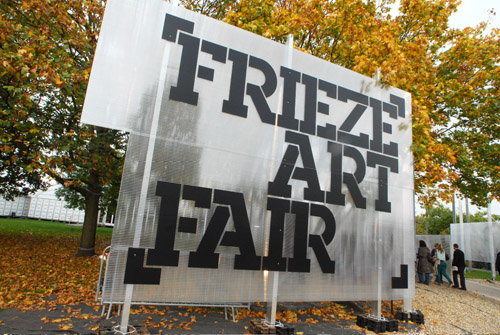International art fair switches to ‘diesel frieze zone’ using WVO biodeisel
Frieze Art Fair took the icy plunge into the depths of energy emissions reduction in 2009, but hasn’t looked back since warming to waste vegetable oil run generators.
The provision of a £20,000 fund from the Greater London Authority allowed Frieze Art Fair, the second largest art fair in the world after Basel, to steer away from using diesel as the main fuel supply for the fair.
This grant allowed for the establishment of an industry steering group to carry out industry consultation for the development of a series of targeted interventions to reduce Frieze’s carbon emissions. An ambitious 60% carbon emissions reduction target for the creative industries was set, reflecting the same overall target for reduction of London’s emissions for 2025.
The largest environmental impacts of Frieze Art Fair were identified through carbon audits from 2007 and 2009. The realisation that diesel generators were one of the biggest contributors to the Fair’s carbon footprint was the impetus to find an alternative way to power this event that has attracted over 60,000 visitors in recent years. It was important to work with contractors to improve the environmental performance of the Fair in a way that was practical and fitted into their current working practices. The use of biodiesel generators to power the event was first piloted in 2009, which progressed on the event using exclusively WVO biodiesel generators in 2010. This immediately reduced the Fair’s associated carbon emissions by 60%. They generate the heat and electricity, and 300W halogen floodlights have been replaced by 70W metal halides to increase energy efficiency. Working closely with their site management team, 20-20 Events, helped in the development of the Fair’s environmental infrastructure, improved the data collection process, and facilitate partnerships with contractors and stakeholders. This change in fuel, along with other measures, have resulted in the carbon footprint per visitor in 2010 being recorded as only 0.25kg CO2e, down 90% on previous years.

